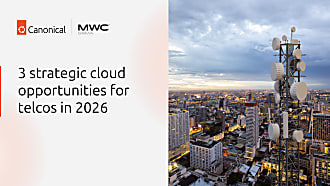Canonical
on 16 December 2015

It’s probably best to have your New Year’s resolutions planned before January 1st is actually here. I started talking about this a few days ago with my friends. I have a few things in mind, one is to ride a century ride on my bike this year (that’s 100 miles or 160km). Another is to better understand the metrics-driven approach of my boss, Tom. He understands the importance of empirical and objective data, and how to apply that to make better business decisions; and more importantly, more productive and happier teams.
My role at Canonical is focused on having a unified voice for our themes and strategies. The input and feedback I get from the rest of my team is what determines the direction we go. That input is big data driven. It’s driven by analytics – collecting information on what our partners and customers are looking for, analysing that information, and trying our very best to deliver the content, solutions, and support they’re seeking. We tend to talk a lot about how a data-driven approach benefits organizations, but it’s more than just a suggestion. We use the tools and data that we talk about to improve our products, sales, and marketing.
What we want from our big data is not just for internal benefit. We want to have better conversations with our customers. When you speak to someone from Canonical, we want our conversations to go deeper than products, we want to talk about the problems you’re trying to solve, and what solutions can address them. To get there, we don’t guess or assume, we look at the data, from feedback forms, web analytics, trade shows, and even things like activity in the open source community. We use big data and analytics to ensure that we are customer focused.
Since big data is so important to our everyday roles here, we put together an eBook that explains it. It’s a great overview of the importance of big data, what general types of data you’ll encounter, and explains how analytics are applied. It’s titled “Big Data, Explained, Analysed, Solved” and available for download here.
We’ve also published a use-case focused eBook that gives specific examples of how telecoms operators can really benefit from the big data ecosystem available in our Juju ecosystem of Charms and partners. While it’s telecoms-focused, many of the principles can be applied in a cross-functional manner by almost any organization that wants to become more data-driven. “Analytics and Big Data, Flexible Solutions for Evolving Telcos” is now available for download.
Please contact us to start a conversation about what big data can do for your organization.



